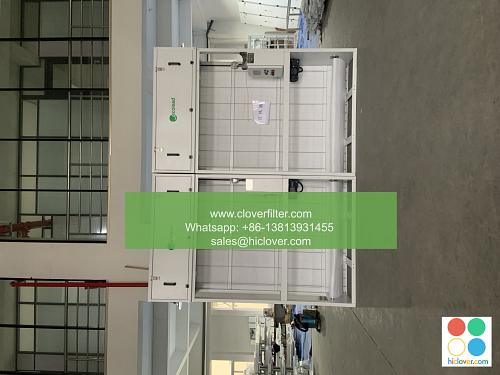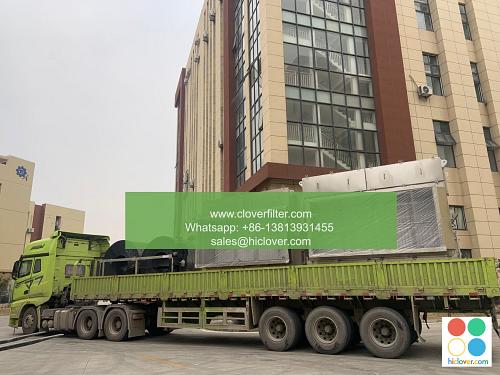Automatic Roll Air Filters: A Key Component in Apotex Toronto’s Clean Manufacturing Process

Apotex, a leading pharmaceutical company in Toronto, has implemented cutting-edge clean manufacturing processes to ensure the production of high-quality products. One crucial component in this process is the use of Automatic Roll Air Filters, which play a vital role in maintaining a sterile and controlled environment. In this article, we will explore the importance of Automatic Roll Air Filters in Apotex Toronto’s manufacturing process and highlight their various application areas.
What are Automatic Roll Air Filters?
Automatic Roll Air Filters are advanced air filtration systems designed to capture airborne contaminants, such as dust, pollen, and other particles, in industrial settings. These filters are equipped with automated roll technology, which allows for continuous filtration and minimal maintenance. By installing Automatic Roll Air Filters, Apotex Toronto has significantly improved the air quality in their manufacturing facilities, ensuring a clean and safe environment for their products.
Key Benefits of Automatic Roll Air Filters
The use of Automatic Roll Air Filters in Apotex Toronto’s manufacturing process offers several key benefits, including:
- Improved Air Quality: By capturing airborne contaminants, Automatic Roll Air Filters help maintain a sterile environment, reducing the risk of product contamination and ensuring compliance with regulatory standards.
- Increased Efficiency: The automated roll technology minimizes maintenance requirements, allowing Apotex Toronto to focus on production and reduce downtime.
- Enhanced Product Quality: By controlling the air quality, Automatic Roll Air Filters help prevent the introduction of contaminants, resulting in higher-quality products and reduced waste.
- Cost Savings: The use of Automatic Roll Air Filters can lead to significant cost savings by reducing the need for manual filtration systems and minimizing energy consumption.
- Pharmaceutical Manufacturing: As seen in Apotex Toronto’s manufacturing process, Automatic Roll Air Filters are essential in maintaining a clean and controlled environment for pharmaceutical production.
- Food Processing: Automatic Roll Air Filters are used in food processing facilities to prevent contamination and ensure compliance with food safety regulations.
- Electronics Manufacturing: The use of Automatic Roll Air Filters in electronics manufacturing helps prevent damage to sensitive components and ensures a clean environment for production.
- Healthcare Facilities: Automatic Roll Air Filters are used in hospitals and healthcare facilities to maintain a sterile environment and prevent the spread of airborne diseases.
Application Areas of Automatic Roll Air Filters
Automatic Roll Air Filters have a wide range of application areas in various industries, including:
Conclusion
In conclusion, Automatic Roll Air Filters are a crucial component in Apotex Toronto’s clean manufacturing process, providing a sterile and controlled environment for pharmaceutical production. The use of these advanced air filtration systems offers several key benefits, including improved air quality, increased efficiency, enhanced product quality, and cost savings. With their wide range of application areas, Automatic Roll Air Filters are an essential tool in various industries, including pharmaceutical manufacturing, food processing, electronics manufacturing, and healthcare facilities. By investing in Automatic Roll Air Filters, companies like Apotex Toronto can ensure compliance with regulatory standards, improve product quality, and maintain a competitive edge in their respective markets.


